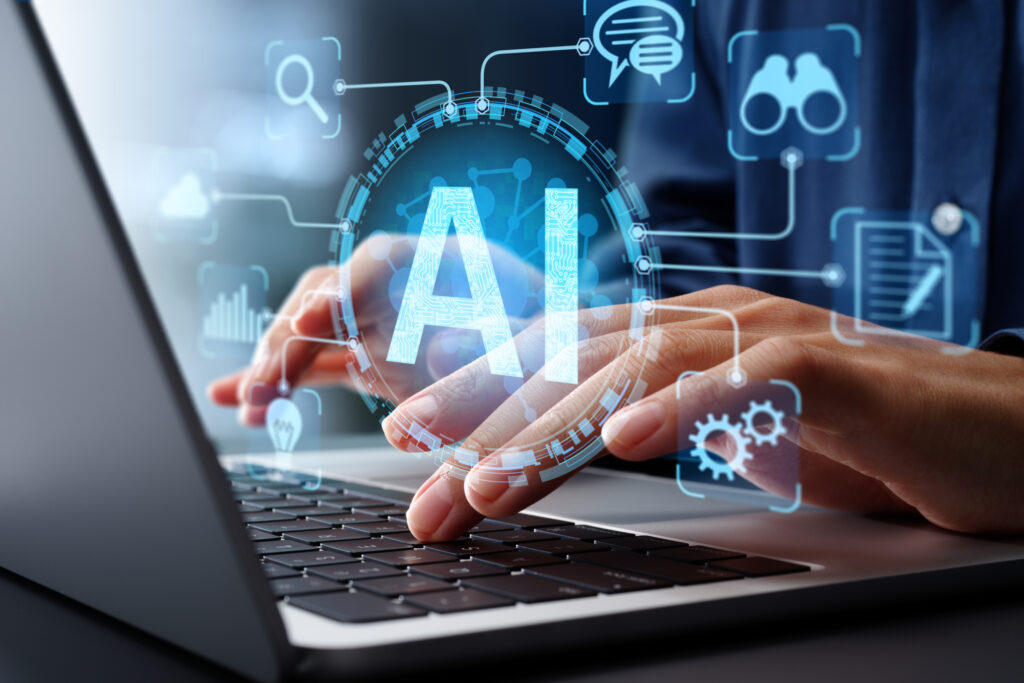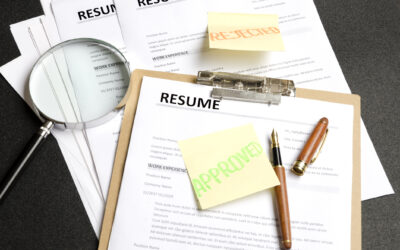A Practical Guide to Using AI as Your Personal Career Coach

In today’s competitive job market, professional career coaching can be invaluable—but also expensive and not always accessible. Artificial intelligence offers an alternative that can provide personalized career guidance at a fraction of the cost.
AI career coaching isn’t meant to replace human coaches entirely but rather to supplement your career journey. These tools can help with resume optimization, interview preparation, career planning, and skill development while being available 24/7.
The first step is choosing the right AI tool. Look for platforms, such as ChatGPT or Claude, that offer conversational abilities and can maintain context throughout your discussions.
Once you’ve selected your AI assistant, it’s time to dive in.
Resume and Cover Letter Optimization – One of the most practical uses of AI coaching is improving your application materials.
-
- Resume Review Prompt: Please review my resume below and provide specific feedback on:
- Overall structure and visual appeal
- How effectively it communicates my skills and experience as compared to what is outlined in the job description [paste job description]
- Areas that could be strengthened or removed for specific job descriptions [paste job description]
- Keywords that should be added for ATS optimization targeted at specific job titles [include job titles]
- Any red flags that might concern employers
- Resume Review Prompt: Please review my resume below and provide specific feedback on:
-
- Cover Letter Creation Prompt: I’m applying for a position with [company name]. Here is the description of the job [paste job description]. Help me craft a compelling cover letter that:
- Connects my experience to the key requirements
- Demonstrates my understanding of the company
- Shows enthusiasm without being generic
- Addresses these specific job requirements: [list 2-3 key requirements]
- Cover Letter Creation Prompt: I’m applying for a position with [company name]. Here is the description of the job [paste job description]. Help me craft a compelling cover letter that:
Interview Preparation – AI can help you prepare for interviews through practice scenarios and feedback.
-
- Interview Practice Prompts:
- What’s the most effective way to structure my response to ‘Tell me about yourself’ that emphasizes my professional strengths?
- Which questions would be most impactful for me to ask when given the opportunity at the end of an interview?
- What’s the best way to respond to the question, ‘What’s your expected salary’?
- I have an interview for [position] at [company]. Please act as the interviewer and ask me 5 challenging questions and suggested responses specific to this role. The job focuses on [key responsibilities], and I want to highlight my experience with [relevant skills/projects].
- Interview Practice Prompts:
Career Planning and Development – AI can help you create personalized growth plans and identify skill gaps.
-
- Career Path Analysis Prompt: Based on my current position as [current role] with skills in [list skills], please:
- Outline 2-3 potential career paths I could pursue
- For each path, identify:
- Skills I need to develop
- Potential intermediate roles
- Approximate timeline
- Suggest specific actions I should take to move forward
- Career Path Analysis Prompt: Based on my current position as [current role] with skills in [list skills], please:
-
- Skill Gap Analysis Prompt: I want to transition from [current role] to [target role]. Please analyze:
- What skills I likely already have that transfer well
- Critical skills I need to develop
- Recommended resources (courses, certifications, projects) to build these skills
- Skill Gap Analysis Prompt: I want to transition from [current role] to [target role]. Please analyze:
Salary Negotiation and Advancement – AI can help you prepare for tough conversations about compensation.
-
- Salary Negotiation Script Prompt: I’ve received a job offer for [position] at [company] with a salary of [offered amount]. Based on my research, the market rate is [market rate range]. Help me create a negotiation script that:
- Expresses enthusiasm for the role
- Makes a case for a higher salary based on my value (if applicable)
- Addresses potential objections
- Salary Negotiation Script Prompt: I’ve received a job offer for [position] at [company] with a salary of [offered amount]. Based on my research, the market rate is [market rate range]. Help me create a negotiation script that:
Maximizing AI Coaching Effectiveness – To get the most from your AI career coach:
-
- Be specific with your prompts: The more details you provide, the more tailored the advice will be.
- Maintain context: Reference previous conversations to help the AI understand your ongoing journey.
- Ask for explanations: If advice seems generic, ask the AI to explain its reasoning or provide more specific examples.
- Provide feedback: Tell the AI what’s working and what’s not so it can adjust its guidance.
- Review, Edit, and Customize: AI is a powerful tool, but it is important to review the output to make sure that it is accurate to your personal and professional situation.
- Combine with human input: Use AI coaching as a starting point, then supplement with industry research and networking.
Final Thoughts
An AI career coach can be an accessible, affordable way to get personalized career guidance whenever you need it. By using specific, detailed prompts and maintaining consistent interaction, you can leverage AI to develop your career strategy, improve your job application materials, prepare for interviews, and navigate career transitions—all while saving time and money that might otherwise be spent on traditional coaching services.
Recent Posts
- Why the job market feels “broken” (and what’s actually happening)
- 7 Steps to Land Your Dream Job in 2026
- Candidate Fraud: A Rising Risk, A Solvable Challenge
- Should You Stay or Should You Go? Career Moves in a Cooling Job Market
- When Does the Interview Actually Start? (Spoiler: It’s Earlier Than You Think)






